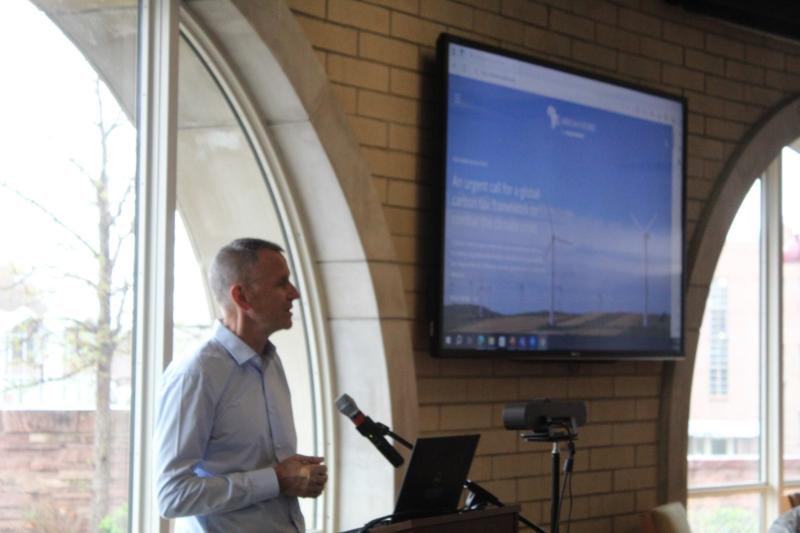Experts Highlight Urgency for Africa's Extended Energy Transition
April 19th, 2024
The Frederick S. Pardee Institute for International Futures, formerly known as the Pardee Center, collaborated with the Institute for Security Studies (ISS) to organize an event at the Josef Korbel School of International Studies in Denver. The event provided a platform for Dr. Fonteh Akum, the Executive Director of ISS, and Dr. Jakkie Cilliers, founding Director of ISS, to present their research on the Future(s) of Africa with a focus on Africa’s energy demand and production and the potential to achieve its targets by 2063.
Presenting their research findings on Africa’s energy outlook conducted using the Pardee Institute's International Futures (IFs) platform, Dr. Cilliers projected a significant increase in energy demand driven by rapid population growth, noting that the continent is likely to fall short of the minimum energy requirements needed to unlock development opportunities without decisive action.
"To unlock development, you need a minimum of about 8 barrels per person. Even by 2063, Africa does not reach that level," Dr. Cilliers emphasized.
Amidst global calls for shifts towards renewable energy, the research suggests that Africa requires an extended transition period away from fossil fuels, recognizing the current absence of technology capable of fully closing the gap. “Africa will need a longer transition from fossil, and that the rest of the world would need to provide a larger carbon emissions budget for Africa”
Adding that, Africa plays a crucial role in trapping carbon emissions through its vast forests and ecosystems. Leveraging this carbon sink capability presents an opportunity for Africa to generate revenue through mechanisms such as carbon taxes.
Speaking at the event, Dr. Fonteh Akum, the Executive Director of ISS, however, underscored the institution's multilayered approach to addressing Africa's most pressing challenges in governance, peace, and security. He emphasized ISS's commitment to using evidence-informed research to inform policy development, stressing the importance of creating platforms for strategic convening that allow research to influence policy spaces.
Dr. Akum further called for deeper cooperation between ISS and the Pardee Institute, highlighting the need for a shared responsibility in finding sustainable solutions to global challenges in an interconnected world.
The ISS team expressed gratitude to the Pardee Institute for providing access to its IFs tool, which has supported their work in producing evidence-based decision-making.
Jonathan Moyer, the Director of the Pardee Institute for International Futures, commended the ISS team for their remarkable research and affirmed Pardee's commitment to collaborative efforts aimed at producing research with real policy impact.
The event brought together students and some faculty members at the Josef Korbel School of International Studies to showcase how our unique approach to integrated assessment modeling has far-reaching, real world applications for informing policymaking at the continental the level.
